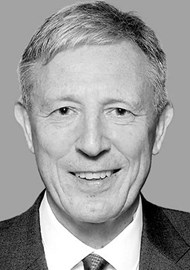It is only human nature to let emotional elements affect a personal perspective. When I saw pictures of Jeremy saying “Victory” I posted a comment on the Junior Doctors contract forum saying that I thought a non-negotiable part of the doctors’ position was that Jeremy Hunt must go. He is a liar, a fraud, and incompetent and the NHS is NOT safe in his hands. Well a younger and wiser junior doctor observed that this was outwith the ACAS remit and if the deal is good, let the smarmy little git have his gloat. Okay, emotions again. He did not use the expression “smarmy little git” but I feel that having come so far, if he claims victory, it only means one thing. That the junior doctors have lost. They have brought the NHS almost to a standstill and for what. They have been outmanoeuvred. No. That is not right. Let us wait till the 23 June (things may change then) and of course the legal challenges. One way or another he has to go. But emotionally tinged Facebook comments are very different from the serious professional opinions required and expected in the processes of law. Back in Hong Kong? Well they printed a letter in the local paper: “Grotesque hangover from the handover.” Now that is good editing from a newspaper professional. I did not use that actual expression but it was the byline for my letter to the South China Morning Post about the Medical Council of Hong Kong. This is the URL http://www.scmp.com/comment/letters/article/1948645/letters-editor-may-20-2016 So it is out there and I have already been contacted to give a presentation at the New Medico-Legal society as a result of the letter.
Now, continuing with the tragic case of Zoey. I am going to put important learning boxes in the blog as they become relevant in the story. The first must be:

These are the minimum number of vital questions an anaesthetist would ask a patient before administering an anaesthetic. Have we got the right patient? Any drug interactions likely? Any allergies? And weight in order to calculate dosage. It is not good enough for a surgeon to say that he estimated the weight to be ‘X’ kg and give drugs suitable for a 50kg patient when she is only 42kg at most. There has been some heated background debate though; for example my younger brother is a very experienced consultant dermatologist and dermatological surgeons do a lot of small lesion removal under local anaesthetic and do not make a practice of weighing the patients. Mind you, in the NHS, recording weight is standard base line data. But this is a very different clinical situation. This is a large infiltration of a lot of drug at one time. And a drug with a maximum recommended dosage based on mg of drug per kg of patient. It is not rocket science, it is basic common sense, weigh the patient. Get it right. Do not gamble.
For sake of continuity I did contact Professor Tomlinson regarding his report. He did reply and I appreciate that. He did not address the specific question, which was how he concluded the dosage of lignocaine was appropriate in view of the available evidence regarding the patient’s true weight. He did say that my dismissive comments about his scholarly analysis of the pharmaco-kinetics of lignocaine metabolism were not appropriate. A mute point. This is very much what you expect from the ‘coached’ expert. That is not an assertion that Professor Tomlinson was coached but this is what we see in medico-legal practice, worldwide. The role of the expert should be to provide independent evidence to the court and not to act as a representative of one side or another. Indeed this is the policy view from the Medical Protection Society, which is a major player in bankrolling medico-legal practice in the UK, Hong Kong and many other parts of the world. You can read their advice on how to write an expert report here: (http://www.medicalprotection.org/hongkong/home/hk-a-guide-to-writing-expert-reports).
What Professor Tomlinson was doing, consciously or unconsciously, was blinding by science. The science was good but did not take into account the effects on cardiac stasis of drug metabolism nor the effects of vigorous massage in the area of infiltration on the absorption of the drug. After all of the extensive details of liver metabolism, bio-availability, debate about different liver enzymes CYP1A2 and CYP3A4, etc. he still includes in the all important summary conclusion that he felt the overall dosage of the drugs given was appropriate.
The other expert report on which the defence relied upon in the inquest came from Dr Francis Ho. I received notice on 2 September 2011 that the inquest was scheduled for Monday 24 to Monday 31 October. I had been asked to provide my expert report to the police and did so in May 2011. The point being that there was ample time for reports to be commissioned and received and for these to be independently reviewed. The figure shows the page of my declaration dated 20 May 2011 which accompanied my expert opinion.

Francis signed the same declaration but the date of his signing was 21 October 2011. The 21st was a Friday. The inquest began on the following Monday. In the proceeding blogs we shall have a look at what Francis had to say. Again, let me say that this ‘examination’ is objective, evidence-based and motivated by a desire for justice to be returned to health and health-related matters of law. I shall give Francis ample opportunity to clarify any points raised because we have to be fair, we have to be objective and we have to be neutral. That is the PMFA News position.




